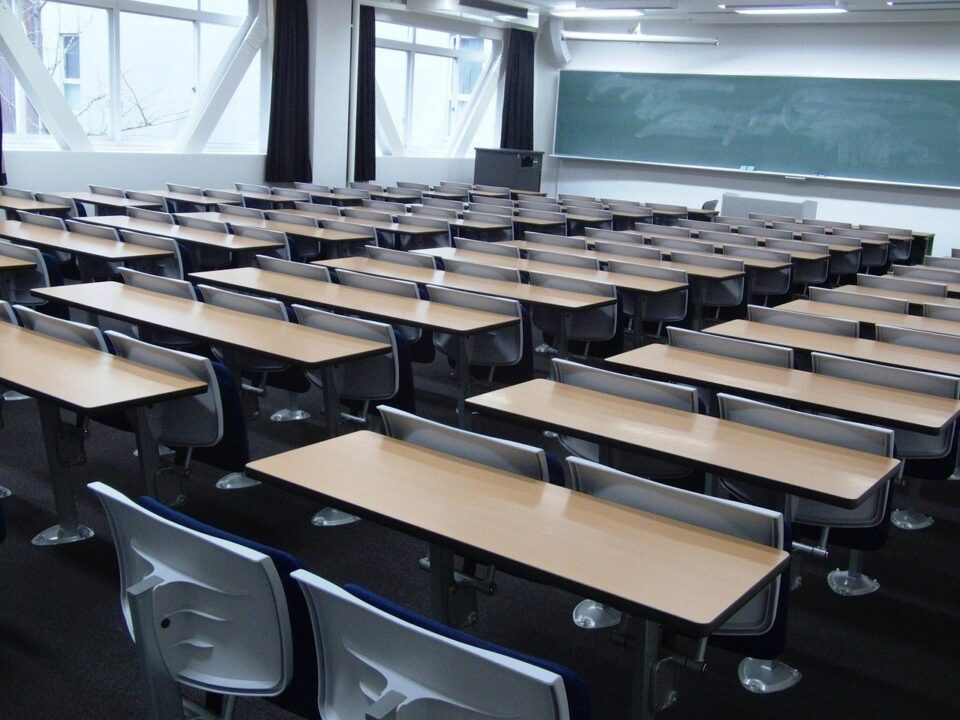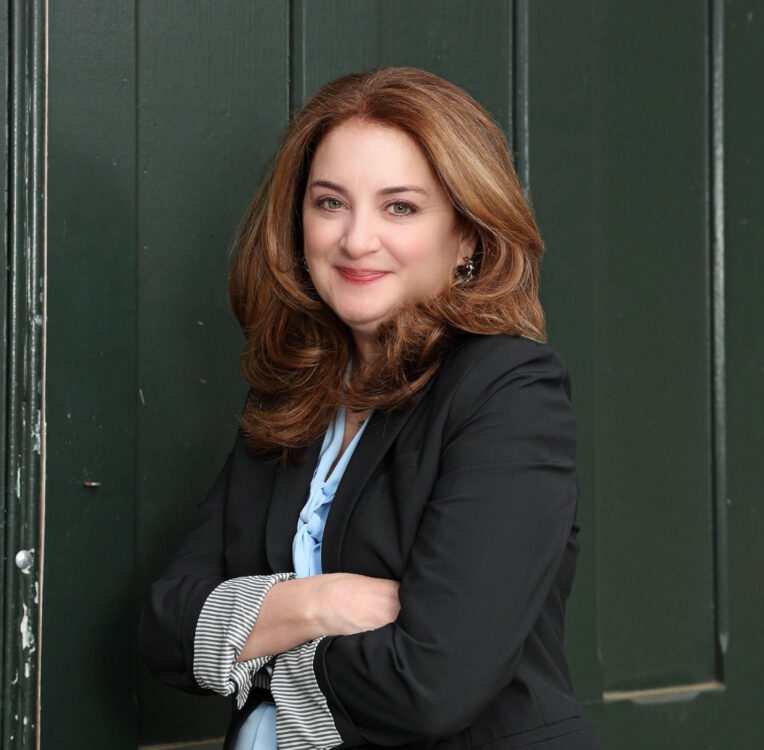
Newark Public Schools Triumph at NJ State Speech and Debate Championships
April 8, 2024
‘Pro-Family’ Group Demands Murphy Remove State Board of Education Candidate
April 9, 2024Five Ways New Jersey Districts Can Sidestep the Lakewood Mess
Last week Assistant Commissioner Cary Booker of the Department of Education (yes, Cory’s brother) issued a report on whether Lakewood Public Schools District needs more state aid because of the extraordinary costs of its 50,000 non-public school students. His answer is “no” —its problem is poor fiscal management, he says, and serves as a warning to South Jersey districts (some North and Central Jersey ones too like Teaneck, West Orange, Edison, Jersey City, Elizabeth, Highland Park, Paramus) that are anticipating a surge in non-public school students. These students, by law, are entitled to transportation and special education services while the private schools they attend are entitled to textbooks, security, and facility support.
Currently Lakewood, the fastest-growing municipality in the state, is on track to be our third largest city by 2030. (Right now Newark, Jersey City and Paterson have higher populations.) But it’s running out of room so Orthodox Jewish families are moving to nearby towns like Toms River, Jackson, and Brick.
Here is Lakewood Mayor Ray Coles: “I think that… the Orthodox population is going to continue to expand, but it’s going to be expanding outwards, not upwards (in Lakewood). You see a lot of (Orthodox) families in Jackson. There’s a lot of families in Howell (and) Toms River. You even have them in Manchester now. So I think you’re going to see the growth continue, but I don’t think it’s going to be within the geographical borders of Lakewood
What can we learn from Lakewood Public Schools’ budget travails? How can these other districts not slide into “poor fiscal management”? After all, the state is not going to start shelling out loans that will never get paid back, which is how Lakewood has kept solvent.
Lakewood is a teachable moment with some low-hanging fruit available to maintain fiscal sustainability there and elsewhere. While these changes will require collaboration with the State Legislature and the DOE, here are five strategies to consider.
Control your legal fees!
Currently Lakewood’s attorney is Michael Inzelbuch. In January the School Board reappointed him with an annual salary of $600,000.00. “In addition,” say the school board minutes, “lnzelbuch shall be compensated at the hourly rate of $475.00 for any litigation services, payable monthly, upon presentation of detailed logs documenting litigation services.” The Board also threw in “third party expenses and disbursements made by lnzelbuch.” Some calculate that Inzelbuch rakes in close to a million dollars per year (and that doesn’t include revenue from the legal practice he runs in his spare time).
Hence, if you look at the budget line item for “Legal Costs” in Lakewood it’s $130 per student per year. (The Lakewood school budget is, oddly, missing from the state database but you can find it here.)
How about, say, Toms River? $24 dollars per student. In other words, Lakewood allocates six times as much on legal fees as its neighbor, which comes directly out of instruction and other services for in-district students.
If you’re paying for special education services, make sure the student is actually eligible.
In his report, Booker says Lakewood “engages in poor fiscal management of special education and transportation, as well as improper auditing practices, while also failing to tax residents enough to meet demands.” What does this mean?
Let’s start with special education, a key component of the district’s fiscal morass: This year it sent $60 million in tuition payments to private schools. Some of that is legitimate, although one could quibble with sending over 240 Orthodox students to the School for Children With Hidden Intelligence (SCHI) for $128,139.90 each per year. (Last year that added up to $32.4 million, or more than half of the $60 million special education tuition pot.)
Where does the other $28 million come from? In Lakewood, allegedly, you can get your child classified as eligible for special education services without going through the rigamarole of typical evaluations, often through something called “parental agreements.” Then the district pays for your child to go to a private ultra-Orthodox yeshiva which is not on the DOE’s list of approved special education schools, a list that other districts abide by. (In 2022 Lakewood settled a court case with a former special education administrator who said money was being “reallocated away from public school children and used to provide speech, occupational and physical therapies for non-public school students attending private schools.”)
New Jersey has many problems providing the federal and state mandate of a “free and appropriate public education” in the “least restrictive environment” to students with disabilities. Let’s not make it worse.
Ensure that the private school you’re sending money to is actually a school.
NJ statute N.J.S.A. 18A:38-25 says “every parent, guardian or other person having custody and control of a child between six and 16” must “ensure that such child regularly attends the public schools of the district or a day school in which there is given instruction equivalent to that provided in the public schools for children of similar grades and attainments or to receive equivalent instruction elsewhere than at school.”
While some of the 140 or so Lakewood yeshivas have augmented their secular education, you’d be hard–pressed to find one that offers “equivalent instruction” to a public district. Girls (ultra-Orthodox yeshivas are gender-specific) receive more secular studies because they are expected to get a job. Boys? From the Forward: “In reality, we all know the truth, that in our primary Torah schools for boys [before Bar Mitzvah] they studied at most an hour and a half, and in the advanced yeshivas [high schools] there were no secular studies at all, [spending their days] fully sacred unto God [in Judaic studies].”
What if Toms River, Brick, Hanover, Jackson, and elsewhere other districts with swelling Orthodox populations only pay tuition to schools that meet the NJ definition of “school”?
*Note: New Jersey has many Jewish day schools that provide a superb secular education.
Work with private schools to cut costs.
This year Lakewood budgeted $34,238,000 for transportation. Almost all of that is for its ultra-Orthodox yeshivas, which forbid boys and girls from riding on the same bus and have different start and stop times.
Yet there is power in numbers. What if the Jersey towns contending with fiscal constraints got together and worked with local private schools to standardize when school days begin and end? This would save money.
Of course, it’s not that simple. Each yeshiva has its own culture, with its own dress codes and rules about, for instance, whether mothers can possess smartphones or how long their sheitels—wigs or head covering–must be. (Married Haredi women must cover their hair; it’s considered an enticement if they don’t. You can get a sense of this from one of the online forums.) Yet there is room for compromise.
Get rid of S2.
When former Gov. Jon Corzine signed the bipartisan bill called the School Funding Reform Act (SFRA), districts were supposed to have their state aid adjusted to ensure local taxpayers paid their “Local Fair Share” and received state aid to cover the rest. After all, community wealth changes over time; Hoboken, for example, is still classified as an Abbott/SDA district because in the 1990’s it was a low-income town; now only 7% of residents are impoverished and the median house price is $800K.
Yet how can a district like Hoboken (there are lots of other examples) flip on a dime? So the state created “Adjustment Aid,” which held districts harmless for drops in aid.
In 2018, after Gov. Murphy signed a bill called S2, NJ started weaning districts off Adjustment Aid while also forbidding tax increases larger than 2%. This puts districts in a real bind, losing tons of state aid while being unable to recover the deficit through tax increases. (For a sense of the consequences, see this op-ed from Brick Superintendent Thomas G. Farrell.) That’s why the State Legislature, each of the last two years, has sent an additional $100 million or so to school districts, a band-aid, not a fix.
Really, what the state needs to do is fix SFRA. While its intentions are good, there are a number of problems, like basing special education aid on a census model which assumes every district has the same percentage of classified students.
Meanwhile, Senators. Andrew Zwicker and Vin Gopal have proposed a bill that would get rid of the 2% tax cap in order for school districts to raise their revenue. Zwicker says the bill is “a temporary stopgap measure to stop major cut,” not a fix for a broken school funding formula. Indeed, Lakewood proves him right: As the DOE’s Booker writes in his report, the district’s board of education has failed to tax residents properly, sacrificing what would amount to an additional $31.5 million a year if it increased taxes by the statutory 2%.
***************************************
What can other school districts do to ensure they don’t end up in Lakewood’s fiscal hole? First, tax residents to the full 2%, which for most household would be a very small amount (especially as many districts do this anyway). If you’re paying for special education in non-public schools, enforce procedures that require our taxes to only go to schools, non-public and public ones alike, that provide the constitutional “thorough and efficient” education. No back-room deals! Work with private/religious school communities to find efficiencies for transportation. And don’t allow what Booker calls Lakewood’s “failure to keep track of expenditures, records and data” and its “questionable spending practices,” like how much it pays its lawyer.
New Jersey children benefit from a diverse education sector that includes traditional district schools, public charter schools, and private schools. But let’s do this right.




